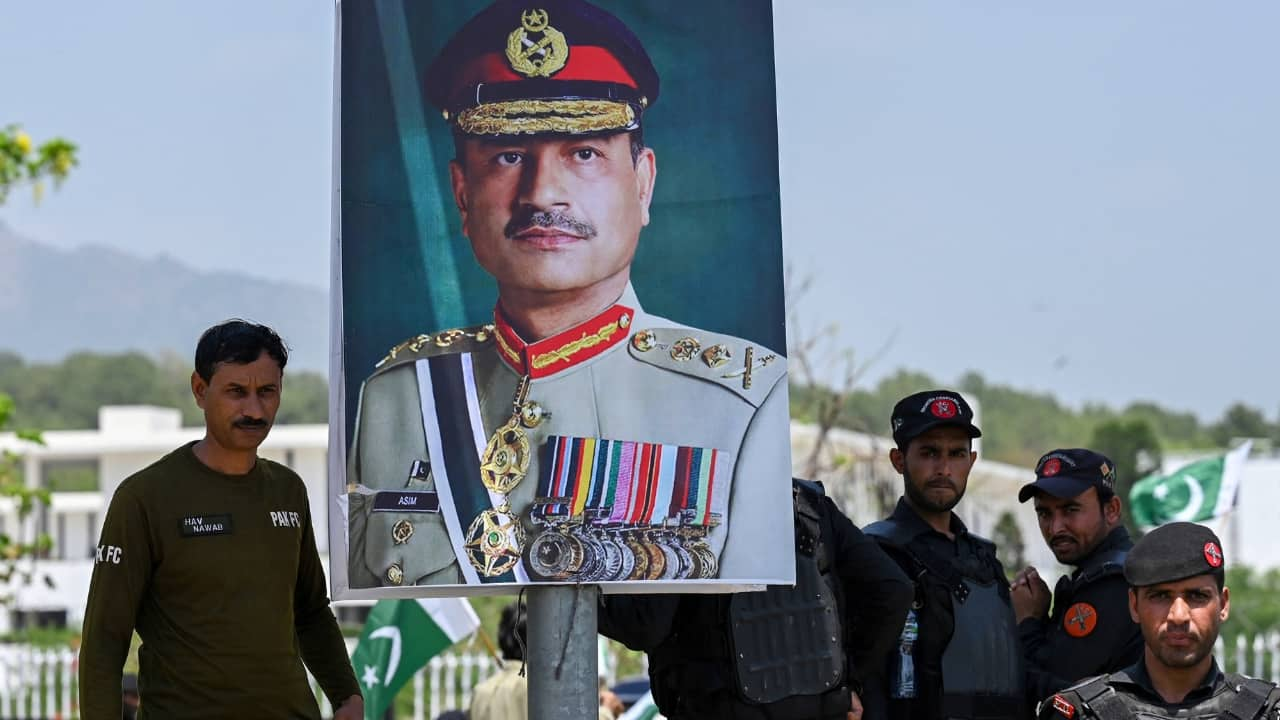World
Shehbaz Sharif Dismisses Military Coup Rumours Amid Power Dynamics

Pakistan’s Prime Minister Shehbaz Sharif addressed recent speculation regarding a potential military coup led by Army Chief General Asim Munir. During an interview with The News, Sharif firmly stated, “Field Marshal Asim Munir has never expressed any desire to become the president, nor is there any such plan in the offing.” This response came after Mohsin Naqvi, Pakistan’s interior minister, labelled the rumours a “malicious campaign” against the nation’s leadership.
Historical Context of Military Influence
Sharif’s choice of words highlights the longstanding relationship between Pakistan’s civilian government and its military, which has a history of staging coups. Since gaining independence in 1947, Pakistan has experienced military rule for approximately 34 out of its 78 years. The first military coup occurred in 1958 under General Ayub Khan, who seized power and established a precedent that has influenced subsequent military leaders.
The political landscape in Pakistan has been shaped significantly by military figures, with General Munir’s recent elevation to Field Marshal drawing comparisons to Ayub Khan. Both leaders are products of a military establishment that often prioritizes anti-India rhetoric and views civilian governance as secondary to military interests. Ayub Khan’s historical role in the first coup serves as a reminder of the precarious balance of power in the country.
Despite Sharif’s assurances, the underlying implications of his statement provoke important questions about the military’s role in governance. While Munir may not currently express ambitions for the presidency, his position as a powerful figure in Pakistan raises concerns about the reality of civilian control over the military.
The Aftermath of Operation Sindoor
General Munir has gained prominence following Operation Sindoor, where he represented Pakistan on international platforms, including a meeting with then-US President Donald Trump. This visibility has solidified his role as a key player in Pakistan’s political landscape, often overshadowing the contributions of the civilian leadership. Prime Minister Sharif praised Munir’s leadership during the operation, yet this admiration highlights the disparity between military and civilian recognition in national affairs.
In contrast, Indian Prime Minister Narendra Modi publicly acknowledged the entire armed forces for their success during the operation, illustrating a different approach to military-civilian relations.
The reality of Pakistan’s political environment suggests that while Munir may not need to pursue the presidency to exert influence, his position allows him to function effectively as a de facto ruler. The military’s unyielding grip on power raises concerns about the future of democracy in Pakistan, where civilian governments often appear subordinate to military authority.
As the nation navigates these complex dynamics, the implications of Sharif’s remarks and the enduring legacy of military rule continue to shape the political discourse in Pakistan. The question remains: how will the balance of power evolve in a country where the military has historically played such a pivotal role?

-

 World7 months ago
World7 months agoSBI Announces QIP Floor Price at ₹811.05 Per Share
-

 Lifestyle7 months ago
Lifestyle7 months agoCept Unveils ₹3.1 Crore Urban Mobility Plan for Sustainable Growth
-

 Science6 months ago
Science6 months agoNew Blood Group Discovered in South Indian Woman at Rotary Centre
-

 World7 months ago
World7 months agoTorrential Rains Cause Flash Flooding in New York and New Jersey
-

 Top Stories7 months ago
Top Stories7 months agoKonkani Cultural Organisation to Host Pearl Jubilee in Abu Dhabi
-

 Science7 months ago
Science7 months agoNothing Headphone 1 Review: A Bold Contender in Audio Design
-

 Sports6 months ago
Sports6 months agoBroad Advocates for Bowling Change Ahead of Final Test Against India
-

 Top Stories7 months ago
Top Stories7 months agoAir India Crash Investigation Highlights Boeing Fuel Switch Concerns
-

 Business7 months ago
Business7 months agoIndian Stock Market Rebounds: Sensex and Nifty Rise After Four-Day Decline
-

 Sports6 months ago
Sports6 months agoCristian Totti Retires at 19: Pressure of Fame Takes Toll
-

 Politics7 months ago
Politics7 months agoAbandoned Doberman Finds New Home After Journey to Prague
-

 Top Stories7 months ago
Top Stories7 months agoPatna Bank Manager Abhishek Varun Found Dead in Well








